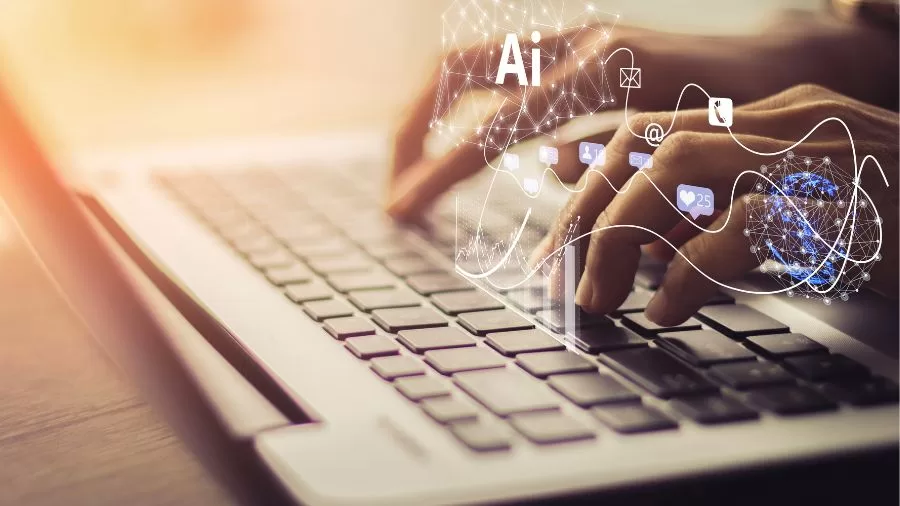Technology
Technologies that Will Shape Your Future

We are in the technological age, and new, innovative technologies crop up each day. A few technologies could determine how we interact with the world around us and access different services. The future will be dominated by smart devices, intelligent systems, and immersive experiences. Let’s dive into a few transformative technologies that are posed to revolutionize the technology world.
Decentralized and Blockchain Technology
Blockchain technology has gotten recognition with the rise of cryptocurrencies. However, its application goes beyond money. It is a decentralized, secure, and transparent technology. It stores information across a distributed network, which eliminates the need for intermediaries. This way, it cuts costs and enhances both security and efficiency in transactions.
This technology has been used in various areas. In casino gaming, blockchain technology enables organizations to offer provably fair games and make secure transactions. Players do not have to share their financial data to deposit or withdraw cash on these sites. Websites like Blackjack.Guide offer insights into crypto gaming and casino sites you can try.
Additionally, blockchain technology also powers decentralized finance (DeFi). Here, traditional banking services like borrowing, lending, and trading are done without brokers or banks. Instead, it uses smart contracts that follow the terms of agreement in code. Technology is also useful in supply chain management, where it helps confirm the authenticity of goods and ensures transparency. Different other services in health, management, and online trading are using the technology to decentralize decision-making.
Machine Learning and Artificial Intelligence
We generate data in everything we do. It could be casual searches, shopping patterns, interactions on social media, and purchase preferences. These trends appear anywhere, whether in healthcare, manufacturing, or the social world. Artificial intelligence (AI) can process vast amounts of data to identify patterns in it. This enables it to automate various processes and offer predictive insights into the likely events in the future.
AI is already powering personal assistants like Alexa and Siri. It also works on chatbots, enabling them to offer 24/7 support. In business, AI helps predict future market trends and likely fraud in finance. It can also be used to predict epidemics and health issues based on available patent data.
On the other hand, machine learning, a subset of AI, is the ability of intelligent systems to learn from experience. This enables them to continually improve services by analyzing interactions and the data provided. Machine learning is common in recommendation engines online, which help organizations recommend products based on user needs. It also enables personalization of devices to work as per the set preferences.
Extended Reality for Easier Digital Interactions
Extended reality covers different forms of virtual reality, including mixed reality, augmented reality, and virtual reality. These technologies are transforming how people are interacting with virtual worlds and consuming digital content. The earliest and most common usage of technology was in the development of Pokémon games, where players searched for Pokémon in physical worlds. Today, technology has spread into gaming, retail, training, and remote work settings.
In gaming, technology enables users to interact with digital characters as if they were in the physical world, which gives them immersive experience. Businesses use VR to enable employees to train and use skills in simulated environments to see the outcome. In the retail world, customers can try out clothing and wearable devices or visualize how pieces of furniture look at home. Casinos have not been left behind and are offering immersive experiences with many of their casino titles.
The rapid development of this technology has been hampered by the high cost of VR headsets, software, and other equipment. However, in the recent past, smartphones and headsets have become affordable. We expect the technology to soon become available to common users.
Edge and Quantum Computing
As technologies like the Internet of Things become mainstream, there is a need to process data as fast as we can so that there is no delay in determining the next course of action. This is where edge computing comes into play. Instead of sending data and commands to centralized computers, the data is processed near the source of information. This reduces latency and enables devices to respond in real time.
On the other hand, quantum computing is the ability of computers to tackle complex problems in a relatively short period. Quantum computers process information in large bits, which enable them to process huge amounts of data in a short period. This enables them to accelerate advancements in fields that require high computing power, like molecular science, AI, drug research, and astronomy.
Technology is evolving quite fast and bringing with it solutions that could make life more comfortable, reduce delays, and create an immersive experience. The above are some of the technologies that will play a significant role in future solutions.

















































